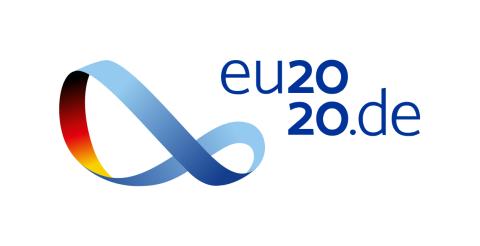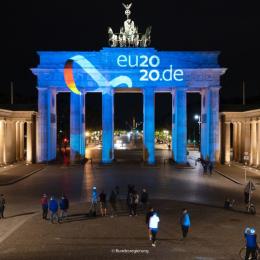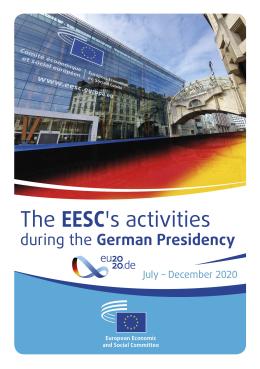European Economic
and Social Committee
Expectations are running high as Germany assumes the EU Presidency
EESC is ready to join forces with German presidency to help find a way out of the crisis and make Europe stronger
On 1 July, Germany picks up the baton from Croatia at the helm of the Council of the EU in what will probably be its most challenging presidency so far, with Europe facing the biggest economic, social and health crisis in its modern history.
As Europe and the world continue to battle with the COVID-19 pandemic, which shut down economies and societies in the first half of 2020 and left millions jobless, GDPs slumping and health systems on the verge of collapse, the 13th German Presidency since the signing of the Treaties of Rome in 1957 will not have it easy during its next six-month term.
Expectations are running high for Germany to lead Europe out of the crisis and the country has already announced that its programme will focus directly on overcoming the COVID-19 pandemic and on shaping the EU's economic recovery as well as on reinforcing Europe's social cohesion.
Germany is expected to deliver on other pressing issues too, such as the negotiations on the Multiannual Financial Framework, climate protection and the European Green Deal, digital transformation, the rule of law and Europe's role in the world. The EU's future relationship with the United Kingdom should also be determined during the German mandate.
In line with its priorities and with its commitment to European solidarity and strengthening common values, the German presidency's motto will be "Together for Europe's recovery". Its programme is underpinned by the following guiding principles:
- overcoming the consequences of the coronavirus crisis for the long term as well as for economic and social recovery,
- a stronger and more innovative Europe,
- a fair Europe,
- a sustainable Europe,
- a Europe of security and common values,
- a strong Europe in the world.
The EESC is ready to contribute to the work of the German presidency and to ensure the voice of Europe's civil society is heard during these most dramatic and crucial times for Europe and its future.
The EESC is ready to join forces to help shape and implement the Next Generation EU recovery plan to lead us out of this devastating crisis while strengthening the European project. We remain committed to the work of the German presidency, leading a Europe that heals and protects together and relaunching a solidarity-based, entrepreneurial and sustainable Europe for a new rEUnaissance,
the EESC president Luca Jahier declared.
The EESC will be working with the German presidency in a number of areas and has already been asked to produce opinions on topics including the platform economy, sustainable supply chains and decent work in international trade, non-profit social enterprises and their potential for a socially equitable Europe, digitalisation and sustainability, and many others.
The EESC would also like to play an active and important role in the Conference on the Future of Europe, an initiative launched by France and Germany, which aims to get all citizens and civil society organisations involved in discussing the EU's long-term goals. The Conference should help strengthen the European project and shape and secure Europe's future. The German presidency pledged to ensure that the conference would also build on the lessons to be learned from the COVID-19 crisis. Originally scheduled to start on Europe Day 2020 during the Croatian presidency, the conference has been delayed due to the pandemic. Recently the Council stated that it should be launched as soon as epidemiological conditions allow.


